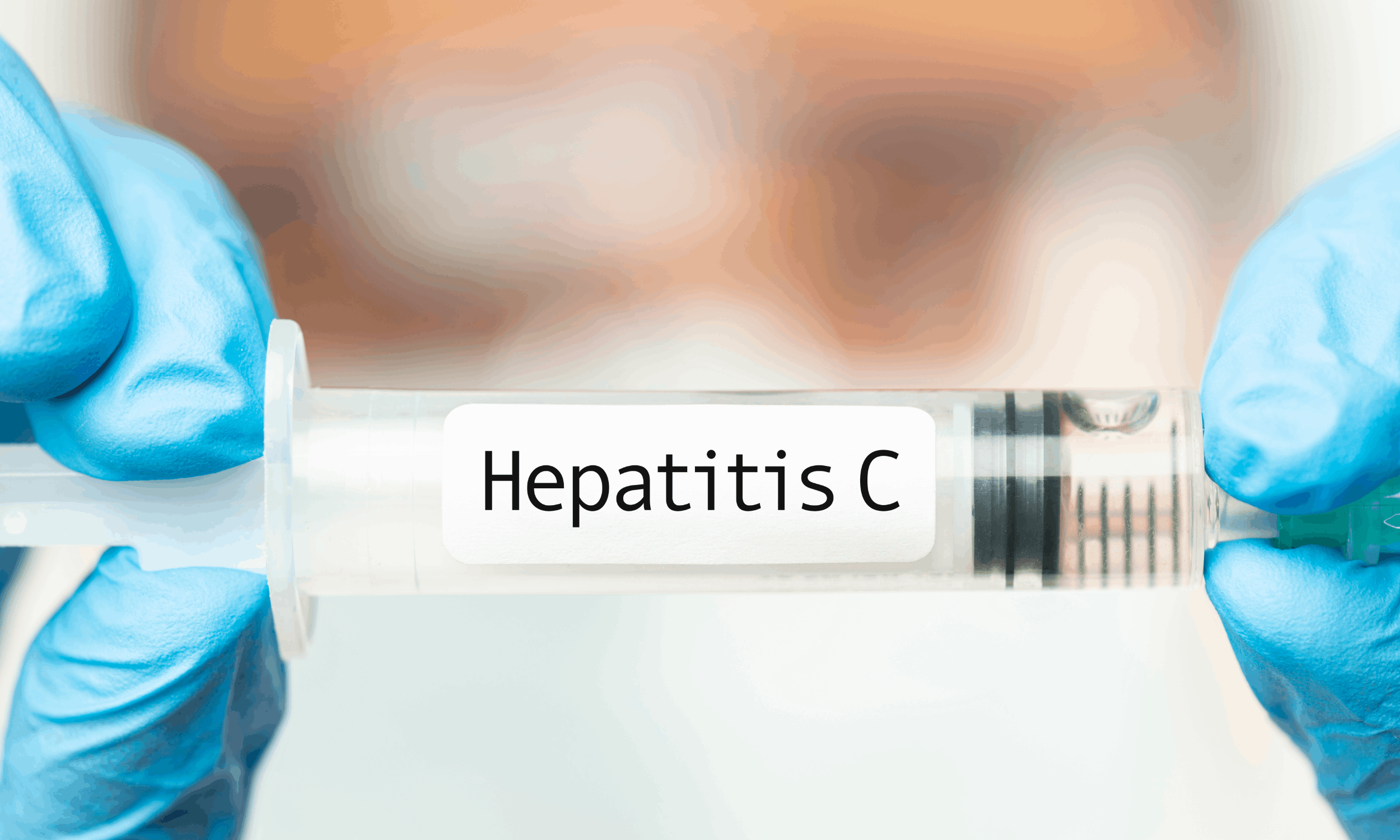
Hepatitis C is a blood-borne virus that causes inflammation (swelling and pain) of the liver. This virus is present in the blood of an infected person and can be spread through blood-to-blood contact.
In Australia, it is commonly spread through sharing unsterile needles, syringes and other injecting drug equipment. There is currently no vaccine to prevent hepatitis C infection, but the latest treatment regime is effective for more than 90 per cent of people.
Since March 2016, the Australian government funds some of the most effective Hepatitis C anti-viral medications through the Australian Pharmaceutical Benefits Scheme. Treatment can help decrease inflammation of the liver, minimise long term complications of chronic liver disease and liver cancer, and possibly prevent transmission.

Many people may not feel ill when first infected with hepatitis C. Others may find their urine becomes dark and their eyes and skin turn yellow (this is known as jaundice), or they may experience a minor flu-like illness. These symptoms may disappear within a few weeks, but this does not necessarily mean that the infection has been cleared.
20 to 30 % of people who have been infected may clear the virus from their blood with no treatment within six months. These people no longer have the hepatitis C virus and are not infectious, but will still have hepatitis C antibodies in their blood life-long. Hepatitis C antibodies signify past, cleared infection, but do not offer any immunity against hepatitis C so people can become reinfected after clearing the virus, or after treatment.
When the initial infection lasts for more than 6 months, it is called chronic Hepatitis C. Chronic Hepatitis C most often does not cause any symptoms until many years after infection. Symptoms of chronic Hepatitis C can include:
In many cases, people who have chronic hepatitis C do not feel ill.
More than 70 per cent of people infected with hepatitis C continue to carry the virus in their blood (that is, they have chronic infection). About 15 to 20 per cent of the people who have chronic hepatitis C will develop cirrhosis, which is severe scarring of the liver.
This may take 20 to 40 years, or more, to develop. A small number of people with cirrhosis may then develop liver cancer.
Hepatitis C is spread through blood-to-blood contact. The most common way people become infected with hepatitis C in Australia is by sharing drug-injecting equipment such as needles, syringes, spoons and tourniquets.
Hepatitis C may also be spread through:
At present, there is no vaccine available to prevent a person from being infected with Hepatitis C. Recommended behaviours to prevent the spread of the virus include:
An antibody blood test from Top Health Doctors can tell you whether or not you have been infected with hepatitis C. It may take two to three months (or sometimes longer) from the time of infection before a blood test can detect antibodies to Hepatitis C.
If you have a positive Hepatitis C antibody test, Top Health Doctors can do an additional test, called Hepatitis C PCR, to determine if the virus is still present in your blood or liver. This Hepatitis C PCR test should follow for anyone who has positive hepatitis C antibodies.
If you are at risk of Hepatitis C infection, or have possible had past exposure to Hepatitis C, you should consult us at Top Health Doctors for a Hepatitis C test.
New combination oral treatments have greatly improved the outcomes for people with hepatitis C. These treatments help can cure more than 90 per cent of individuals with chronic hepatitis C. There are several new tablets that are used in combination to treatment all Hepatitis C strains (genotypes).
You should consult us at Top Health Doctors in the first instance to have a liver assessment and to be directed to the appropriate treatment.
An assessment of your liver health, which will include blood tests and possibly a non-invasive test for liver damage (called a FibroscanTM), may be performed.
There are some side effects related to hepatitis C medicines, however the new tablets are generally very well tolerated. Most of the side effects common with the older interferon injection-based treatments – including mental health side effects – are not seen with the new tablet medications.
It is important to talk to us at Top Health Doctors about treatment options and potential for interactions with other medications, herbal preparations and other drugs.
In general, people who have hepatitis C will feel better if they:
This service is only available at Top Health Doctors Underwood. Please call the rooms to arrange your appointment to discuss Hepatitis C treatment.
Australian Society for HIV, Viral Hepatitis and Sexual Health Medicine
The content above is derived partly from Victoria State Government Better Health Channel.
Please see our Disclaimer in the FAQ page
About Top Health Doctors
Our Practices
Our Services
Top Health Doctors would like to acknowledge the traditional custodians of the land on which we live and work. We would also like to pay respect to the elders past and present and extend that respect to all other Aboriginal people.
The content created for this website is general information only, and this may not be applicable to you or your unique circumstances. Please consult your health professional to find out more.
© 2024 Top Health Doctors

Cannon Hill Clinic
Shop 1 K Mart Plaza Cannon Hill, 1909 Creek Road, Cannon Hill Qld 4170

Greenslopes Clinic
Shop 10 and 11, Greenslopes Mall, 700 Logan Rd, Greenslopes QLD 4120

West End Clinic
Suite 2, Healthcare Hub Floor 1, Montague Markets, 405 Montague Rd, West End Qld 4101

New Branch
Coming Soon
Contact Us
Follow Top Health Doctors
Expression of Interest